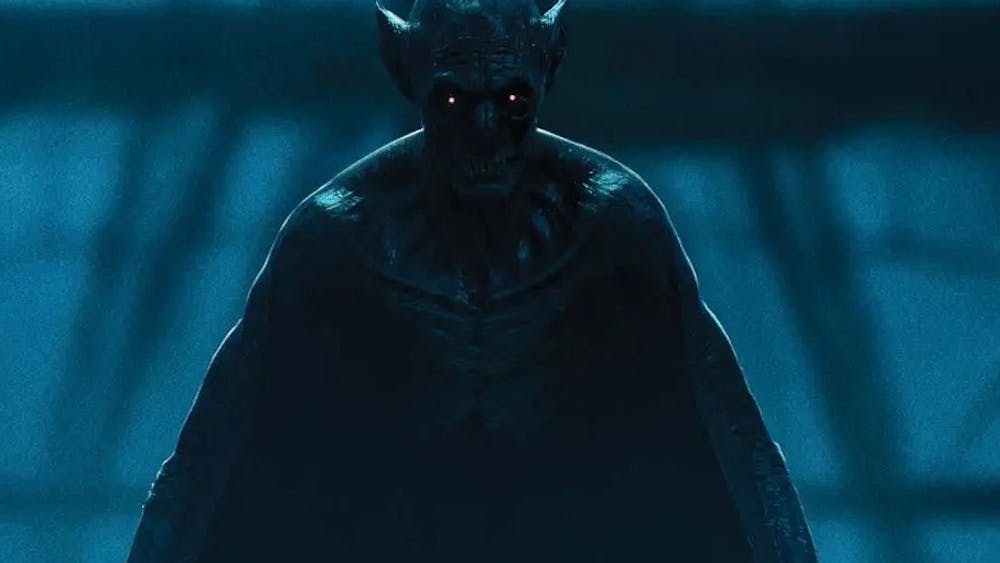Spending more than three and a half hours playing music and meeting and greeting audience members, the Lincoln Center Jazz Orchestra, featuring Musical Director Wynton Marsalis, performed a long, thoughtful and dazzling show Thursday night at the IU Auditorium. The group took the stage just after 7:30 and spent about two hours onstage playing as a group. After a standing ovation from the audience, Marsalis and three others came back for an encore, which earned them yet another standing ovation.\nAlthough Marsalis received top billing on tickets, the showcasing of each talented member of the Orchestra was the most impressive part of the show. Each man had a chance to perform either a solo or a part in a smaller group, allowing the audience to see and hear the unique sound each instrument and each musician brought to every piece. \nThe opening number, "Back to Basics," is a perfect example of this, as Marsalis introduced the Orchestra and each instrument had a chance to shine. \nFor the non-musically educated, this was the perfect number to begin with because it showed how all pieces of the Jazz Orchestra come together to create a whole. Next up was "Asia Minor," which sounded exactly like you might expect from hearing the title. A highlight of the piece was the use of a flute, an instrument not usually associated with jazz, but a perfect fit for "Asia Minor," nonetheless. Next up was "Has Anyone Seen Basie?" to which Marsalis added: "If you have, let us know because its going to be time for us to leave if you've seen him."\nAnother highlight of the show was saxophonist Walter Blanding Jr. and trumpeter Marcus Printup performing "The Olive Tree," an original composition written by Blanding to commemorate the time he spent in Israel. After performing "The Olive Tree," Marsalis announced the group would then play two songs in honor of Gwen Paulk, the director of the African American Cultural Center who died April 10. "Free as a Bird to the Mountain" and "Didn't He Ramble" are pieces traditionally played at a funeral in New Orleans. \nAlthough the orchestra engaged the audience the entire night, these two pieces brought performers and onlooker together in experiencing the intense sadness and joy each song represented. After the show, Marsalis explained "Free as a Bird…" is the dirge played while going out to the grave site and the more upbeat "Didn't He Ramble," is played after the burial. Together, the two songs represent death and rebirth.\nNext, baritone sax player Joe Temperley, an original member of the Lincoln Center Jazz Orchestra, played Duke Ellington's "Sunset and the Mocking Bird," the first movement from Ellington's "The Queen's Suite." \n"It wasn't originally written for baritone, but Joe likes it," Marsalis explained to the audience.\nRegardless, Temperley made the piece seem like a perfect fit for him; his playing was so expressive the audience could visualize the scene of that sunset.\nAfter the encore, about 30 audience members who waited in one of the auditorium's green rooms got the chance to meet and talk to Marsalis and several of the other orchestra members. The men signed autographs, took pictures and conversed with everyone present. They were still doing this at 11 p.m. \nThe Lincoln Center Jazz Orchestra gave the kind of performance and acted like the kind of performers every audience deserves to see at least once in a lifetime. Not only do they give a great show, but they also showed their audience exactly how much their attendance was appreciated by playing long and staying late. See this group perform live; if you weren't a jazz fan beforehand, you will be before it's time to leave.
Marsalis, Orchestra give excellent performance
Get stories like this in your inbox
Subscribe





